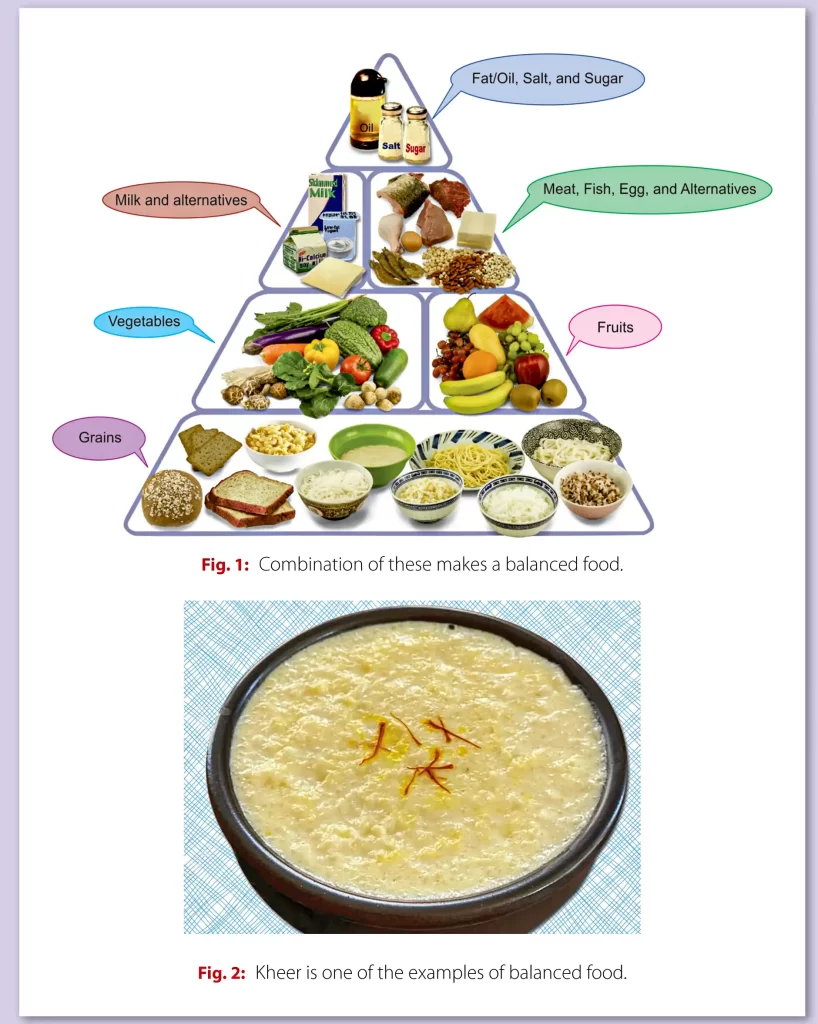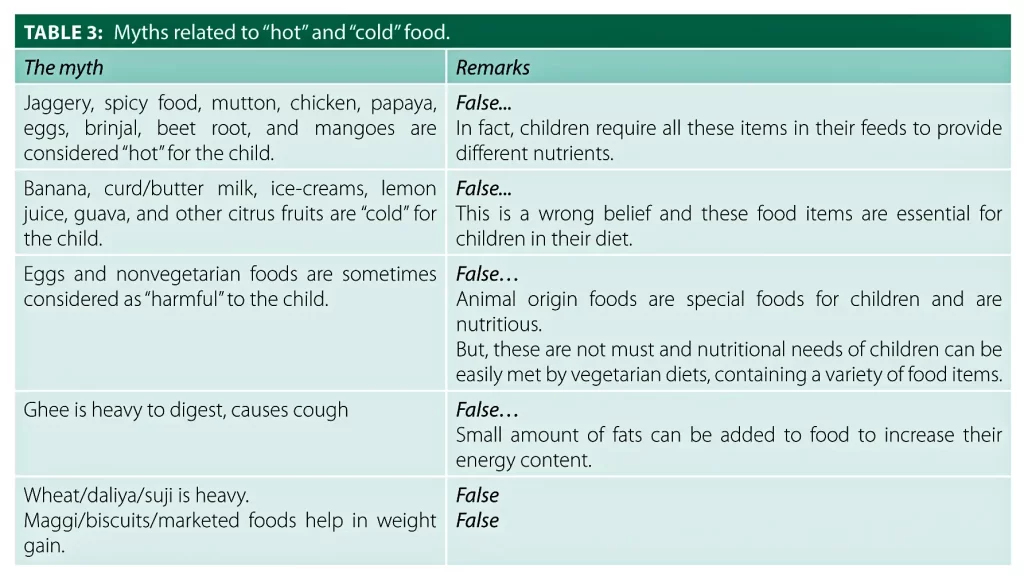
Improving Nutritional Value:
To enhance the nutritional value of your baby’s meals, focus on adding ingredients that boost energy and protein content. Add ghee, vegetable oils, or butter to increase energy density. Combine cereals with pulses to provide essential proteins. You can also improve the texture and flavor by using cooking methods like germination and fermentation.
Dietary diversity is key to meeting your baby’s nutritional needs. Ensure they consume a variety of foods from different food groups, including vegetables, fruits, cereals, and pulses.

Common Myths and Misconceptions:
There are several myths surrounding complementary feeding. For instance, many believe that imported fruits or expensive health drinks are superior to locally available options. In reality, seasonal and locally available fruits and vegetables are just as nutritious and more affordable.
Commercial foods often come with exaggerated health claims. As far as possible, prepare your baby’s food at home using simple, fresh ingredients. Avoid relying on processed or packaged foods, which may contain additives and preservatives.

Preventing Allergies and Long-Term Health Issues:
While food allergies are not very common in Indian children, it’s important to be aware of potential allergens such as cow’s milk, soy, eggs, and peanuts. If you suspect your child is allergic to a particular food, consult your pediatrician.
Good nutrition during the first two years of life can also help prevent adult diseases like heart disease, high blood pressure, and diabetes. Overfeeding can lead to obesity, which is another risk factor for these conditions.
Ethical Considerations:
Unethical marketing practices by commercial companies can mislead parents into choosing inappropriate foods for their babies. It’s important to base feeding decisions on scientific evidence rather than marketing claims. By providing your child with the best possible nutrition, you’re laying the foundation for a healthy future.
